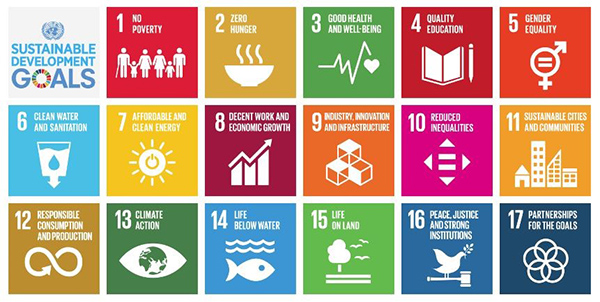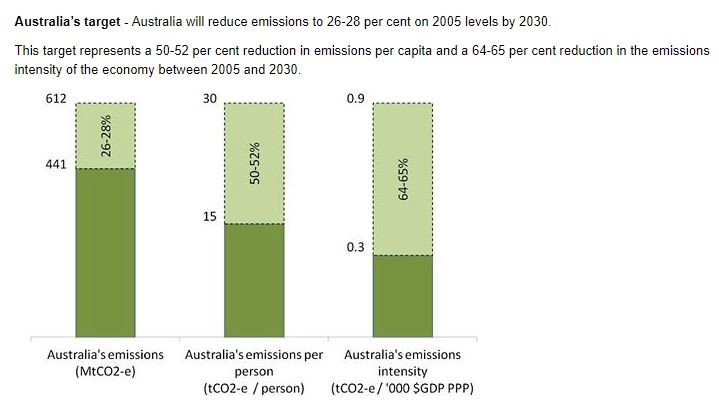After attending the World Engineers Convention (WEC) in Melbourne late last year, Engenium Project Manager (Perth, WA) Paul Young shared some important reflections on the importance of sustainability in mining operations.
Engenium sits down regularly to discuss what the ‘Uber’ of engineering might be – trying to and predict what might be the next engineering industry disruptor and get ahead of the curve.
In recent years we’ve seen massive upheavals in the taxi, accommodation, music and entertainment industry as well as advances in data cloud storage, digital photography and e-commerce. All this disruption has left in its wake once successful companies who failed to move with the times.
One social game changer that has leapt into engineering vocabulary is ‘sustainability’. Once believed to only be a fringe consideration, sustainability is now a major specification in any engineering and project brief.
This was heavily reflected at the World Engineers Convention (WEC) last year. The theme of the conference was Engineering a Sustainable World: The Next 100 Years and it was aligned to the 17 United Nations Sustainable Development Goals (SDGs).
The SDGs are aspirational goals developed by the United Nations and are being used by global companies as a guide to operating sustainably. They are not just about addressing climate change, as some might believe when they think of the word ‘sustainability’.

Figure 1: The United Nations 17 Sustainable Development Goals
A key observation from the World Engineers Convention was realising the next generation of engineers, our future engineering leaders, were comprehensively embracing sustainability. Old ways of doing things were constantly challenged and these young participants simply did not accept that development could not be sustainable and economical. Many ideas and concepts were clever tweaks to a design that achieved sustainability goals and solved the engineering problem at hand.
Our blue-chip mining companies are now standing up and taking note, not only because of the demands of the community but also because it can be profitable, provide respite from regulators, engage the community and it’s ‘the right thing to do’.
Importantly, operating sustainably can bolster the share price and increase a company’s market capitalisation, as we see individual and institutional investors move funds into companies that act sustainably as an ethical investment requirement and away from companies and industries that don’t.
Fund managers can often punish companies that do not act sustainably. Increasingly, funds are only investing and trading with ethical and sustainable companies. Norway is investing away from its traditional emissions heavy, oil and gas markets. Some of the world’s largest companies are going to great lengths to embrace sustainable operations with global mining giant BHP recently announcing to the market, major sustainability initiatives with Rio Tinto not far behind in timing and content.
But why do the world’s two biggest miners believe it’s important to pursue these goals and why is it important that mining operations act sustainably? Simply, these mining companies are aware that if our mining sector does not embrace sustainability, then we shall lose community support for what we do and that will make it a whole lot harder for us to operate and do so profitably.
Without sustainability it will get harder to get our mines approved, we will be subject to more community activism and more opposition to new mining developments. We will continue to find it difficult to attract new talent to our industry and we will find it increasingly difficult to finance our developments as investors punish companies and sectors that are perceived to exploit the environment and the community unsustainably.
Critically, due to the democratic election cycles, politicians will publicly turn against us whilst still accepting their royalty cheques.
Social License to Operate
If you’re thinking of moving to countries that don’t have such strong sustainable regulatory environments as Australia, think again. It’s likely these countries will have significant sovereign risk associated with operating there.
Activity in the mining industry is critical to our society and the Australian economy. The commodities mined in Australia are key inputs into almost everything businesses and consumers throughout the globe need to conduct their everyday life. Minerals are not only critical to our 21st Century way of life but are also critical to emerging economies and lifting many millions of people out of poverty, slaveryand hunger.
Our industry needs to operate sustainably or we will lose our license to operate from the community and the government regulators. This will push commodity prices higher as supply and demand mechanisms kick in. No-one wins in this scenario, particularly those in poverty and developing nations.
The Australian Federal Government has relatively modest renewable energy and emission reduction targets, which play an important role in cutting carbon pollution and reducing Australia’s emissions. Their aim is to reduce emissions by 26–28% on 2005 levels by 2030.

Figure 2: The Australian Federal Government’s Emission Reduction Target for 2030
As public pressure continues to increase on governments and corporations, failing to enact plans for sustainability will leave companies dangerously exposed to rapidly changing legislation, changing goal posts and negative community sentiment.
I have no doubt that Australian emissions reduction targets will increase over time. In the wake of the recent bushfires in Australia, Prime Minister Scott Morrison is already talking about change in this area.
Increased Benefits of Operating Sustainably
There is no need to be scared of operating sustainably. The initial fear that it will increase costs can be addressed. As highlighted at the World Engineers Convention, mining sustainably can deliver financial benefits. Companies cannot make a profit in the community in which they wish to operate if the community steadfastly refuses to let them operate. Whilst it’s important to acknowledge the reduction of carbon emissions is a key benefit to the industry, adopting the mindset of ‘mining sustainably’ will deliver all aspects of the United Nations 17 SDG’s.
What is Mining Sustainably?
Mining sustainably is aspiring to achieve the goals set out in the United Nations SDG’s which is much more than reducing emissions, installing a solar farm or building a concrete bund to contain hydrocarbons.
It is about engaging with the community and aspiring to deliver positive community and social outcomes. It is about rejecting supply chains that include slavery and servitude, and about protection and enhancement of the environment. It is humanity and the earth’s biosphere co-existing and enhancing both current and future human needs.
No longer can a mining company mobilise to a community, rampantly exploit the natural and human resources that a location offers and then abandon the area, leaving a trail of toxins and broken communities in its wake.
To operate and do so profitably, a company needs to consider and address successfully the following:
1. Community Development and Health
Mining sustainably within a community should provide relief from poverty, hunger and servitude for local communities. This is not considered to be charity – it is about being a part of a community’s good health and educational aspirations.
2. Gender Equality
Providing equal employment opportunities across gender and cultural backgrounds, as well as providing decent and fair working conditions and economic growth for the regions we operate within.
3. Innovation and Infrastructure
Contributing to local industries, funding research and critical infrastructure to support the mining operation, local communities and sustainable cities and its community. The provision of affordable and clean energy to trigger economic growth, health improvements and clean water.
4. Environment
Responsible consumption and production of natural resources, as well as protecting our environment to ensure our children’s children will still be able to live and prosper off the oceans and lands.
5. Justice and Strong Government Institutions
Avoiding unethical behavior and providing local industries and Government institutions with peace, public safety and justice in the areas we operate in.
6. Competitiveness
Reducing energy costs to benefit supporting industry, particularly when renewables become cheaper than fossil fuel, keeping in mind that the cost of renewables continues to fall as technology improves. While we haven’t reached the financial tipping point just yet between renewable energy and fossil fuels, if Australian mining doesn’t keep up with world trends when it comes to renewables our mining could quickly become less competitive within world markets.
Final Thoughts
You may be a climate change denier, but would we maintain profitability if our oceans and lands no longer supported us? Or if areas couldn’t be mined because there was no local industry to support the operation? Or if a communities public safety was compromised and so no one would work there?
There is little profit to be made where these conditions exist. A case in point is East Africa. A region overflowing in natural resources essential to our way of life which is predominantly stuck in the ground because they failed to achieve sustainability in this region.
Engenium is committed to operating sustainably and incorporating sustainability values and objectives into all of our projects. We can ensure your projects strive to achieve the United Nations 17 SDG’s. Engenium understands the importance of community and stakeholder engagement and how to integrate them into your project.
This is a sponsored article, with content provided by Engium.
About Engenium: Since their beginnings in 2003, Engenium have developed a solid reputation as a trusted Project Delivery and Engineering Consultant to the mining, resource and industrial infrastructure sectors.


